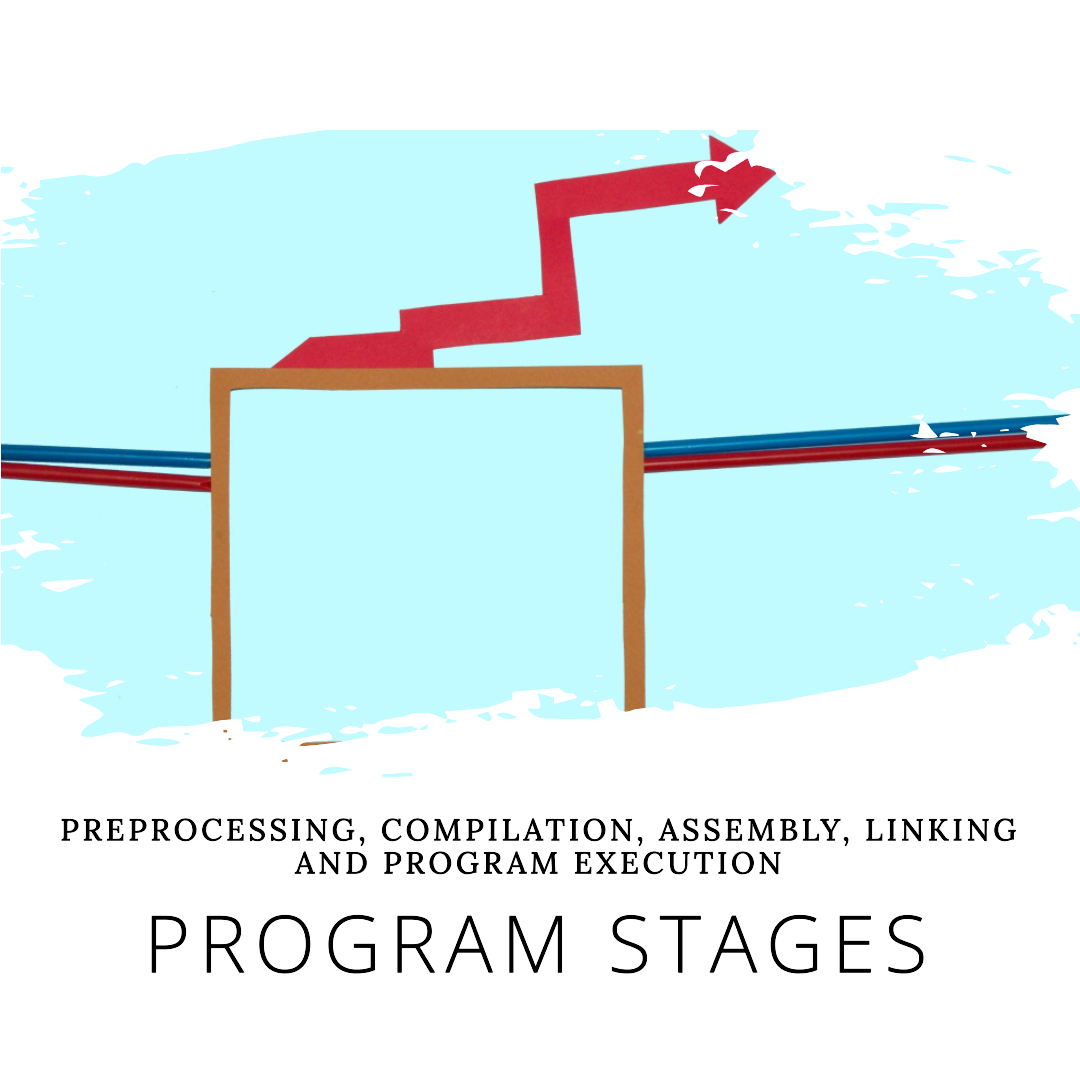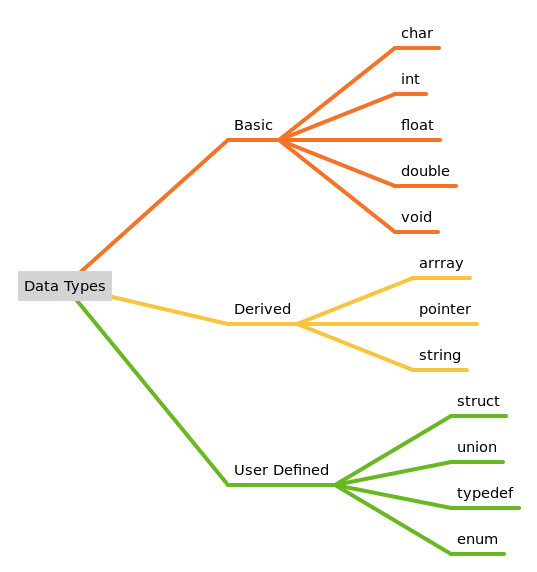C-Programming Execution and Expressions
 Vishesh Raghuvanshi
Vishesh Raghuvanshi
C Program Execution Process
Preprocessing: The C preprocessor performs tasks like macro expansion, file inclusion, and conditional compilation. It processes the #define, #include and #if directives and generates preprocessed source code.
Compilation: The preprocessed source code is compiled by the compiler to generate object code. The compiler checks the syntax, and semantics and generates object code (machine code + symbol table).
Assembly: The object files generated by the compiler are assembled by the assembler to produce the executable file. The assembler resolves external references and links object files.
Linking: The linker combines multiple object files and library files and generates an executable file. It resolves external function calls and variable uses.
Program Execution: The generated executable file is executed on the system. The operating system loads the executable into memory and the CPU starts executing the machine instructions.
History
1969 - Dennis Ritchie starts working at Bell Labs. He started developing the B programming language as an improved version of Thompson's BCPL language.
1970 - Ken Thompson starts developing the Unix operating system at Bell Labs.
1971 - The first version of Unix is written in assembly language.
1972 - Ritchie develops a C compiler to allow Unix to be written in a higher-level language. The language is initially called "B" and then renamed to "C".
1972 - The first C compiler and Unix written in C are released.
1973 - Version 6 Unix is the first to be written almost entirely in C. This starts the close relationship between C and Unix.
1974 - The C language is described in Ritchie's paper "The Development of the C Language".
1978 - Brian Kernighan and Dennis Ritchie publish "The C Programming Language" book. This popularizes C and establishes its syntax and semantics.
1983 - C Standardization committee formed. The ANSI X3J11 committee works to standardize C.
1989 - The ANSI X3.159-1989 standard for C is published and widely adopted. This makes C a truly portable language.
1990 - The ISO C standard ISO/IEC 9899 is published.
In the 1990s - C became extremely popular and is used to write many important applications and operating systems like Linux kernel.
1994 - ISO publishes C9X to add features to C like function prototypes.
1999 - ISO publishes the C99 standard with many new features.
2011 - The current C11 standard is published with further improvements.
Today - C remains an important programming language due to its performance, portability and ability to interface with hardware. It is used for systems programming, embedded systems and low-level applications.
Operators and Expressions
Variable
Variables are used to store values that can change during the execution of a program.
A variable is a named memory location that can store different values at different times during the execution of a program.
Syntax:
datatype variablename;They are declared with a name and a data type. Some examples of variable declarations are:
int x; float y; char name;Variables are then assigned a value using the assignment operator (=). For example:
x = 5; y = 3.14; name = 'John';The data type of a variable determines the type of values it can store. Common data types are int, float, char, double, boolean, etc.
Variables are allocated memory during compilation. The amount of memory allocated depends on the data type.
Variables allow us to store data and manipulate them to perform various computations in a program. They are fundamental to programming.
Data Types
Data types determine
Type of Data
Size of memory
Range of data
Operations that can be performed on data

Modifiers
Modifiers specify the scope, storage duration and other properties of variables and functions in C.
The main modifiers in C are:
static - Specifies that a variable has static storage duration. The variable exists and retains its value for the lifetime of the program.
extern - Specifies an external variable or function. It allows a variable/function to be accessed from other files.
auto - Specifies a local variable with automatic storage duration. The variable is destroyed when the function exits. This is the default for variables.
register - Specifies that a variable should be stored in a register. It hints to the compiler to optimize the variable.
const - Specifies a constant variable. The value of a const variable cannot be changed.
volatile - Specifies that a variable can be modified by external factors. The compiler should not optimize access to it.
For functions, the main modifiers are:
static - Specifies a local function. The function is only visible within the file.
inline - Suggests to the compiler to replace calls to the function with the actual code. It optimizes the function.
Subscribe to my newsletter
Read articles from Vishesh Raghuvanshi directly inside your inbox. Subscribe to the newsletter, and don't miss out.
Written by
